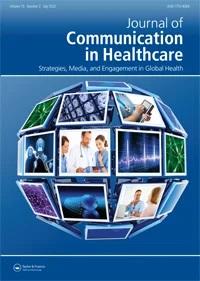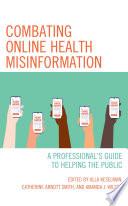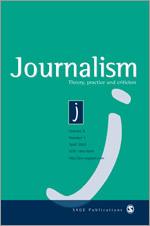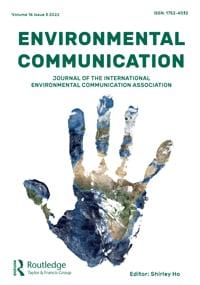Kathryn Thier

Research Expertise
Communication Science
Health Communication
Mass Communication
Kathryn Thier earned her B.A. in History from Brown University and her M.S. in Journalism from Columbia University. She is currently pursuing a Ph.D. in Communication Science and Social Cognition. Before coming to the University of Maryland, she taught journalism and public relations for five years at the University of Oregon, where she co-founded The Catalyst Journalism Project, a research and teaching collaborative focused on the intersection of solutions and investigative journalism. Kathryn’s research interests include media effects of solutions journalism and health communication. She is a research assistant for Dr. Xiaoli Nan.
Publications
How Solutions Journalism Shapes Support for Collective Climate Change Adaptation
Solutions journalism, an emerging practice focused on credible stories about responses to societal problems, may offer an alternate approach.
Author/Lead: Kathryn ThierContributor(s): Tong Lin
News media are the public’s primary source about risks such as climate change, but traditional journalistic approaches to climate change have failed to build support for collective social responses. Solutions journalism, an emerging practice focused on credible stories about responses to societal problems, may offer an alternate approach. From an online experiment with a convenience sample of U.S. undergraduates (N = 348), we found that solutions journalism stories were positively associated with perceived behavioral control, which mediated support for collective action for climate change adaptation. Additionally, attribution of responsibility to individuals and government, participant hope, and eco-anxiety were associated with support for collective action. Findings extend our understanding of how risk communication affects policy support for climate change adaptation and suggest that solutions journalism may allow journalists to communicate climate change’s danger without depressing support for social action to mitigate its effects.
Read More about How Solutions Journalism Shapes Support for Collective Climate Change Adaptation
Understanding the psychological antecedents of COVID-19 vaccine acceptance among Black Americans: implications for vaccine communication
Examination of the psychological antecedents of COVID-19 vaccine acceptance among Black Americans
Author/Lead: Kathryn ThierContributor(s): Yuan Wang, Xiaoli Nan
Non-ARHU Contributor(s): Clement Adebamowo, Shana O. Ntiri, Sandra Crouse Quinn

Guided by the 5C (confidence, complacency, constraints, calculation, and collective responsibility) model of vaccination behavior, we examine the psychological antecedents of COVID-19 vaccine acceptance (i.e. attitudes and intentions toward COVID-19 vaccination) among Black Americans, a group disproportionately affected by the coronavirus pandemic.
Defining Health Misinformation
According to the World Health Organization (WHO), we are entering an age of “infodemics,” with misinformation leading to mistrust in health authorities, increasing risk-taking behaviors, and undermining public health responses.
Author/Lead: Yuan WangContributor(s): Kathryn Thier, Xiaoli Nan

According to the World Health Organization (WHO), we are entering an age of “infodemics,” with misinformation leading to mistrust in health authorities, increasing risk-taking behaviors, and undermining public health responses (WHO 2020). While concerns are rapidly growing about the prevalence and harmful impact of health misinformation (Nan, Wang, and Thier 2021), scholars have not clearly defined health misinformation or its components. Without a clear definition and shared agreement on what constitutes health misinformation, comparisons across studies purportedly about health misinformation will remain challenging, hampering our efforts to understand this phenomenon, assess its effects, and design effective interventions. However, defining misinformation in the first place is exceedingly difficult, partly because the benchmarks we often use to diagnose misinformation (eg, scientific evidence and expert consensus) are sometimes moving targets (Vraga and Bode 2020). In light of the ongoing debate about the nature of misinformation and the urgent need for a clear definition of health misinformation, this chapter aims to critically review current definitions of health misinformation, identify key challenges in defining health misinformation, and finally propose a tentative, unifying definition of health misinformation to guide future research. We conclude by discussing directions for future efforts in refining the definition of health misinformation.
A Narrative Solution: The Relationship between Solutions Journalism, Narrative Transportation, and News Trust
Article suggests that crafting engaging journalism stories including solutions could be good for the industry and for democracy.
Author/Lead: Kathryn ThierNon-ARHU Contributor(s): Jesse Abdenour, Brent Walth, & Nicole Smith Dahmen

Lack of trust is a paramount problem facing journalism. Solutions reporting, which focuses on credible responses to societal problems, could help improve news trust. In addition, narrative journalism has been associated with several positive outcomes. This study tested the novel idea that solutions stories and narrative transportation can positively impact news trust and story-specific beliefs. A 2 (story frame) × 3 (story topic) between-subjects factorial design experiment with a representative sample of US adults (N = 608) was used to test these relationships. Participants who read solutions stories and who were more transported had greater faith that the articles they read were fair and truthful and also indicated greater agreement with story-specific beliefs. However, analyses indicated that transportation did not act as a mediator between solutions stories and the outcome variables. Findings suggest that crafting engaging journalism stories including solutions could be good for the industry and for democracy.


